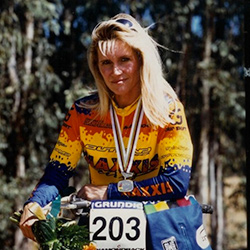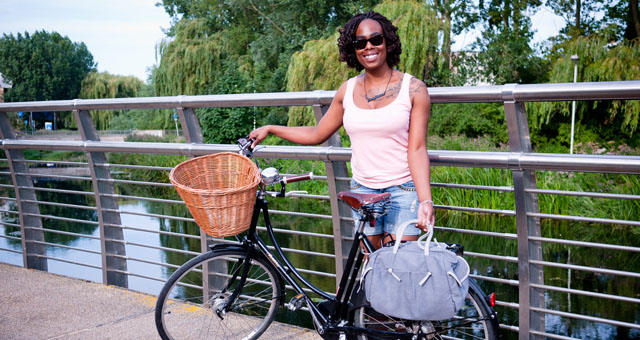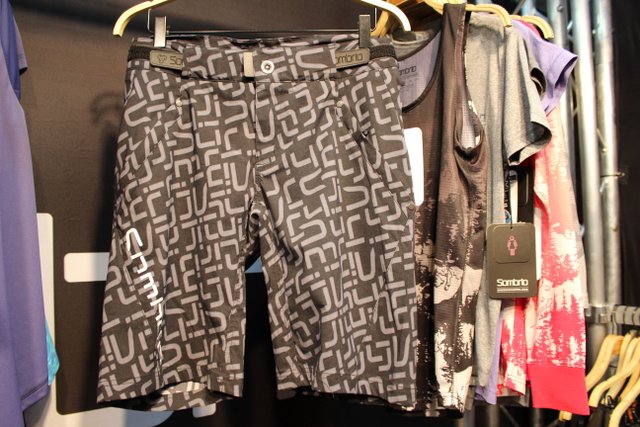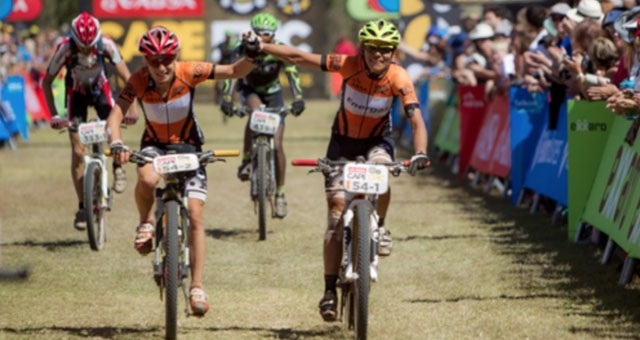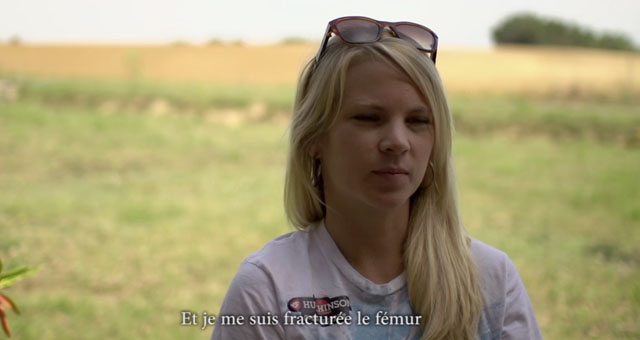If you’re into mountain biking, then at least some of the following things will be familiar to you; Santa Cruz Bicycles, British downhill legend Steve Peat, the UCI DH World Cup race series, World Champion rider Greg Minaar, and racer Josh Bryceland.
What’s the connection between all of these? The answer Kathy Sessler, manager of the Santa Cruz Syndicate team. We spoke to the woman in charge of one of the most successful and well known teams in downhill racing about how she got started in mountain biking herself, her own racing career, and what it’s like to be a team manager.
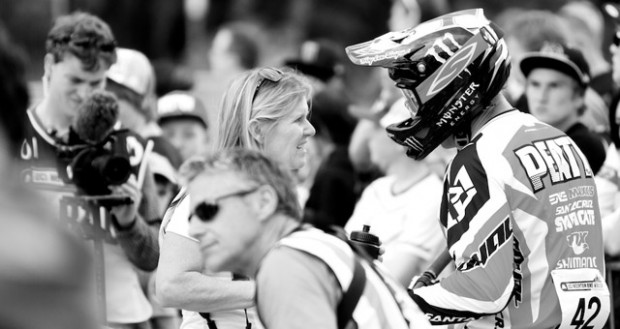
“I got into mountain biking in 1989. I had done a few triathlons, and a friend of mine had her husband’s old mountain bike for sale. She’d bought him a new one, and spent $500 dollars on it – I thought ‘you are smoking crack! $500! That is a load of money!’. She sold the old one to me for $50.
I had no idea what mountain biking was; I’d ridden on the road for so long. One day, I went out, rode the bike on the trails near my house and it reminded me of the days when I used to ride motorcycles.
I looked at my husband and said ‘yup, that’s what I’m doing now, racing mountain bikes
My first mountain bike race was in 1989, and my last was in 1997. I raced in many world championships, and back in those days they had a veteran category, which was women 35 and up. I’m a bronze medallist, silver medallist and gold medallist, and three times national champion in the veteran women’s category.
From racing to managing
When I used to race, I had a lot of friends and we’d room together. So I was always cooking, organising things, and being a mom. I had those natural capabilities, and I love to cook and stuff!
A good friend of mine is Jeff Steber from Intense Cycles, and I actually was his first pro rider. When I finished with racing, he had need of someone to help with his management. So I said ‘Oh, I’ll help with your stock, just gimme a bike!’ I helped him organise a few things, and I did that for a year or two.
Then an old teammate of mine, Darren, was working for Jeff with intense tyre systems, and he wanted to make a mountain bike team; ‘Intense Tyre Systems’. Then he pulled off from Intense and talked to Rob Roskopp of Santa Cruz Bicycles, and Rob sponsored Intense Tyres Systems with Santa Cruz bikes.
Darren, having been my former teammate on the Maxxis team, asked me to be his manager. I’ve been doing that ever since.
We did team for two years, and then Darren chose not to do it any more, and Rob said ‘Hey Kathy, I’d really like to keep the team going, would you like to still do it?’
So I think 2004 was the first year of the Santa Cruz Syndicate, as we know it today. So this is actually my tenth year working for Santa Cruz doing team management.
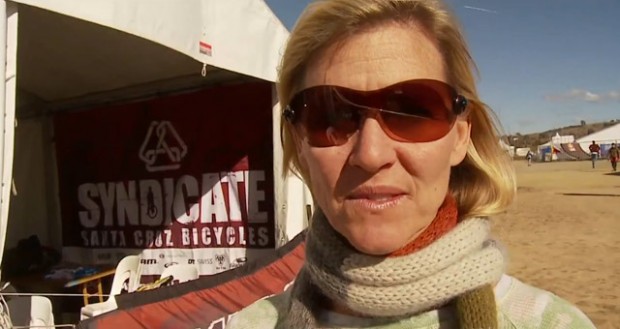
The work of a team manager
What does a mountain bike team manager do? There is not one description to fit all. I’d describe it best to say each team manager brings their own skillset to the job. Many team managers are former racers, and friends of mine that I’ve known through the years. Some of them are mechanics – one of my former mechanics is a manager now.
The skillsets I bring are my organisational capabilities, my understanding of downhill from being a racer, my motherly instincts, my cooking, that sort thing. I take photos so I use those in my race reports, and so on.
Some other team managers might bring maybe their own mechanical abilities to it, or order all the bike parts. Well, I’m not going to order the bike parts, but I am going to go to the store and buy all the food. There is not catch-all for the team manager, we all do many different things.
It’s a really rewarding job, there are so many high points, and I really honestly can’t say there are any low points! There are some really rich moments, and sometimes these moments that mean a lot aren’t always the wins.
Some wins seem emotionally hollow or not as exciting, or whatever. Then sometimes you see the guys and what they’ve worked through all week to get to the place that they have, and maybe it’s only 72 place, but it feels really satisfying, if you know what I mean.
Like, last year Steve was injured at Fort William – he tore his hamstring. He chose to race. Then we went on to Mont Sainte Anne, and he was still injured but could still ride. He qualified in the 30s or something, and I thought ‘that’s good’ because he still has all the skills.
I have to tell you that watching him go through the process of the injury itself, and what was in his mind, to get to the finish line of those races – those were really rich experience for me to watch, because you really see the strength and character of a person, of a racer, going through all that.
That to me is something that’s a really rewarding and enriching experience, even though in this case the finish position sucked!
Female team managers
There are not many women in my position; very few. In fact, I don’t really know any other team managers that are women
It’s a job that requires a lot of time away from home. I have grown children and my husbands retired, so it’s not like I have tremendous duties at home that keep me there.
When I was racing, my children were getting into their teen years, and I wasn’t gone too much, and I raced mostly domestically, so that wasn’t too bad. Now that my children are grown I have the time to go away and that could be one of the reasons. But then again it kind of goes back to the question of the skill set for managing and what you bring to it.
As for who could do it, anyone can do it! You’ve just got to have the understanding and the motivation and the desire and the opportunity!
I think in this position gender doesn’t matter, I think passion is more important. If there’s a woman who’s passionate about it, then she should go out there and pursue it. And if it’s going to happen for a woman to do it, then it will.

